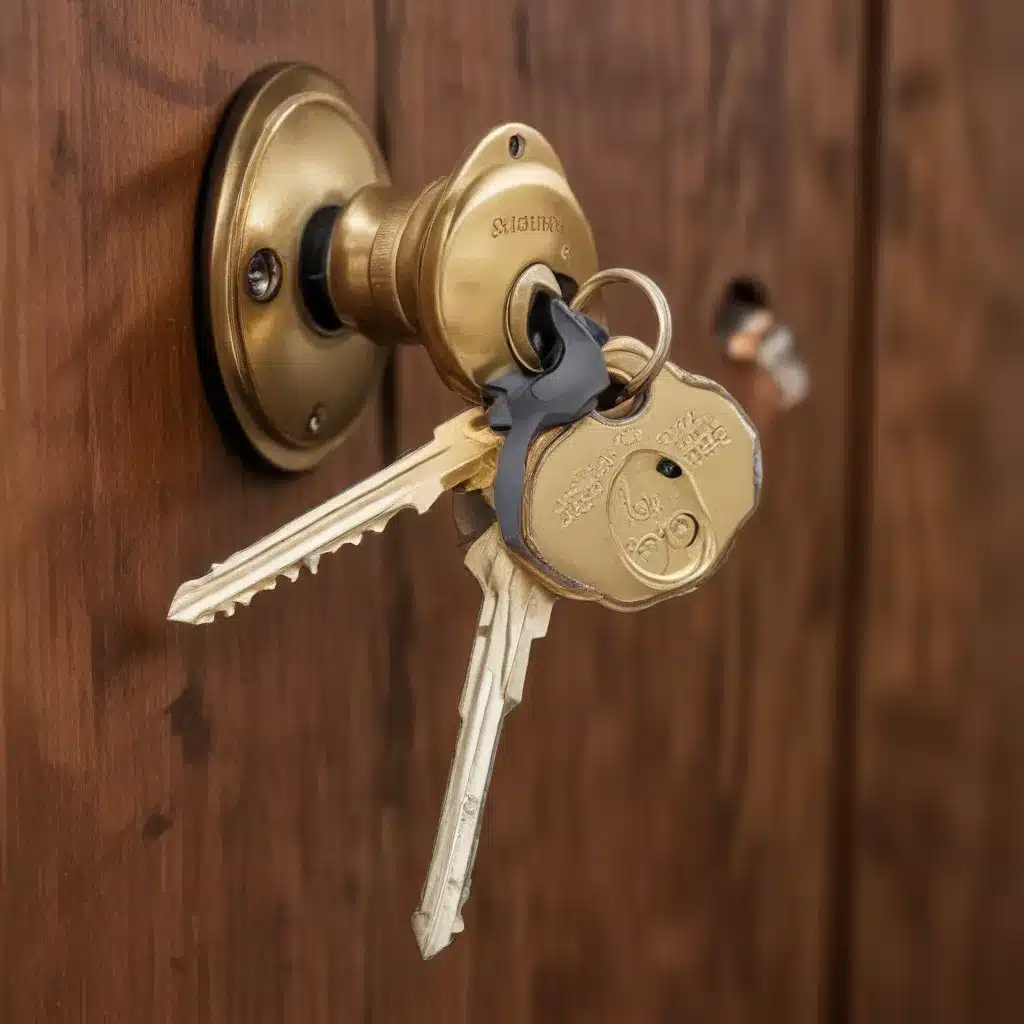
Mastering Key Duplication: Locksmith-Approved Techniques for Secure Backups
As an experienced locksmith serving the Washington D.C. area, I’ve seen firsthand the importance of having reliable key duplication methods. In this comprehensive guide, I’ll share the locksmith-approved techniques and strategies you need to master key duplication and ensure secure backups for your home or business.
Locksmith-Approved Duplication Procedures
Proper key duplication is a delicate art, requiring precision and attention to detail. As a professional locksmith, I’ve developed a thorough understanding of the various techniques used to replicate keys effectively and securely.
One of the foundational methods is mechanical key duplication. This involves using specialized machines that can precisely copy the intricate cuts and grooves of a key onto a blank. These manual or automated duplicators allow us to create an exact replica, ensuring a perfect fit and function.
For more advanced lock systems, such as those found in commercial or luxury properties, we often turn to digital key copying. This process utilizes electronic programming to replicate the unique code embedded within the key. By interfacing with the lock’s electronic components, we can create a new key that seamlessly integrates with the access control system.
Regardless of the duplication method, the key is to maintain strict quality control and adhere to industry best practices. This includes carefully inspecting the key blanks, calibrating the equipment, and testing the duplicates to ensure they function flawlessly.
Backup Strategies
Having secure backups of your keys is crucial to maintaining uninterrupted access to your property. As a locksmith, I recommend a two-pronged approach to key backups:
Physical Key Copies:
Maintaining physical backup keys is an essential part of any security plan. These can be stored in a secure location, such as a safe or a lockbox, to be accessed only when needed. It’s important to keep these copies hidden from plain sight and limit access to authorized personnel.
Digital Key Storage:
In the digital age, many modern lock systems offer the ability to store key data electronically. By leveraging secure cloud-based platforms or dedicated key management software, you can create digital backups of your keys. This provides an additional layer of protection and allows for quick retrieval in the event of an emergency.
When implementing digital key storage, it’s crucial to follow strict security protocols, such as using strong encryption, multi-factor authentication, and regularly reviewing access controls.
Key Material Types
The type of key material can have a significant impact on both the duplication process and the overall security of your locks. As a locksmith, I’m well-versed in the most common key materials used in the industry:
Brass Keys:
Brass is a popular choice for residential and commercial keys due to its durability and corrosion resistance. Brass keys are relatively easy to duplicate, making them a practical option for everyday use.
Steel Keys:
For applications requiring increased security, steel keys are a common choice. These keys are more challenging to duplicate and offer enhanced resistance to wear and tear.
Aluminum Keys:
Lightweight and cost-effective, aluminum keys are often used in lower-security applications, such as for residential and light commercial use. While they are easier to duplicate, they may not provide the same level of security as brass or steel keys.
Depending on your specific security needs and the complexity of your lock systems, I can guide you in selecting the most appropriate key materials for your property.
Duplication Equipment
Effective key duplication requires specialized equipment and tools. As a professional locksmith, I have access to a range of duplication solutions, each tailored to different lock types and security requirements.
Mechanical Key Duplicators:
These machines, both manual and automated, use precise cutting tools to replicate the intricate profiles of keys. By carefully aligning the original key and the blank, the duplicator can create an exact copy, ensuring a perfect fit and function.
Digital Key Copying:
For electronic lock systems, we utilize specialized software and programming tools to create digital backups of your keys. This process may involve interfacing with the lock’s electronic components or using encrypted data transfers to securely store and reproduce the key information.
Regardless of the duplication method, I always ensure that the equipment is properly calibrated, maintained, and used in a controlled environment to minimize the risk of errors or unauthorized access.
Security Implications
While key duplication is a necessary and essential service, it’s crucial to consider the security implications and take appropriate measures to mitigate risks.
Access Control Risks:
Unauthorized key duplication can lead to a breakdown in access control, potentially allowing unauthorized individuals to gain entry to your property. This can result in theft, burglary, and other security breaches.
Mitigating Security Threats:
To address these concerns, I recommend implementing robust key control policies, such as restricted key distribution, maintaining detailed records of key holders, and regularly reviewing access privileges. Additionally, incorporating advanced locking systems, such as those with key-code or biometric access, can provide an extra layer of security.
As a professional locksmith, I’m committed to providing secure and reliable key duplication services that prioritize the safety and security of my clients. By understanding the locksmith-approved techniques, backup strategies, and security considerations, you can be confident in maintaining the integrity of your lock systems and safeguarding your property.
For any inquiries or assistance with your key duplication needs, please don’t hesitate to reach out to me at Local Locksmith Washington DC. I’m here to help you navigate the complexities of key management and ensure your security remains uncompromised.


